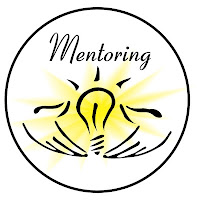There are many reasons to establish a mentoring relationship
and many possible ways to structure one. A variety of gifted student
populations can benefit from such a relationship, including
- those interested in career choice and development
- students needing help in affective areas
- young people wanting to pursue a specific area of interest in-depth
- those having progressed beyond the curriculum offered at school
- disadvantaged children
A mentoring relationship will not meet the needs of every
gifted student. Before going through the work of setting up a mentorship, one
must ask seriously if there is enough of a commitment on the part of both the
mentor and the protégé to make it successful.
Some people suggest that the creation of a mentoring
experience should wait until high school. I think that it depends on the goals
of the program. One elementary school had a very successful mentoring program,
but it required a great deal of time on the part of a parent volunteer to make
it work. The following steps were taken:
- Teachers and parents were surveyed to find students who had a very strong interests in subjects that went beyond the scope of the curriculum. This was evidenced by maintaining that strong interest for a minimum of two years.
- The student was asked if he would like to participate in a mentoring program.
- The parent volunteer searched for someone who might address the needs of that student. The circle of possibilities started close, asking teachers and parents if they knew of anyone who might be appropriate and then branched out from there.
- Once a potential mentor was found, the mentor, protégé, and parent met to make certain that they felt comfortable with one another.
- An agreement was signed to meet outside of the school building and outside of school time for ten times. (Many of the mentoring relationships went on long beyond that, but it is important to have that initial limit so that no one feels trapped by a long commitment.)
- Legal issues between the school and mentor were discussed. (This may vary from district to district.)
- Parents addressed any concerns they had about leaving their child with someone they don’t know well.
Some examples of successful mentorships at the school,
included
- A child who was interested in snakes being paired with a herpetologist from the zoo.
- A student who was interested in cartooning being paired with a political cartoonist for a local newspaper.
- A boy gifted in music being paired with a jazz musician.
- A young person who was interested in computers working with an IT person.
- A person who was very interested in visual spatial math pairing with a person who specialized in this field.
Mentoring disadvantaged children may be approached in an
entirely different way and for different reasons. When mentoring this group of
children, an adult may act as a mentor in a specific area of interest or she
may help the student to see the possibilities beyond the young person's limited
environment.
The mentoring of high school students takes on an entirely
different face. Subject specific mentors require more and more expertise and mentoring
for career decisions can be very important. When considering a mentoring
program at high school, you may want to see the work being done by Sigma Xi:The Scientific Research Society. Also, corporations are sometimes willing to work with adults to set up
mentorship programs with talented youth.
Whatever population is mentored, whether it is a formal
program or something more informal, it can be a valuable experience.

No comments:
Post a Comment
Your comments will be available after approval.